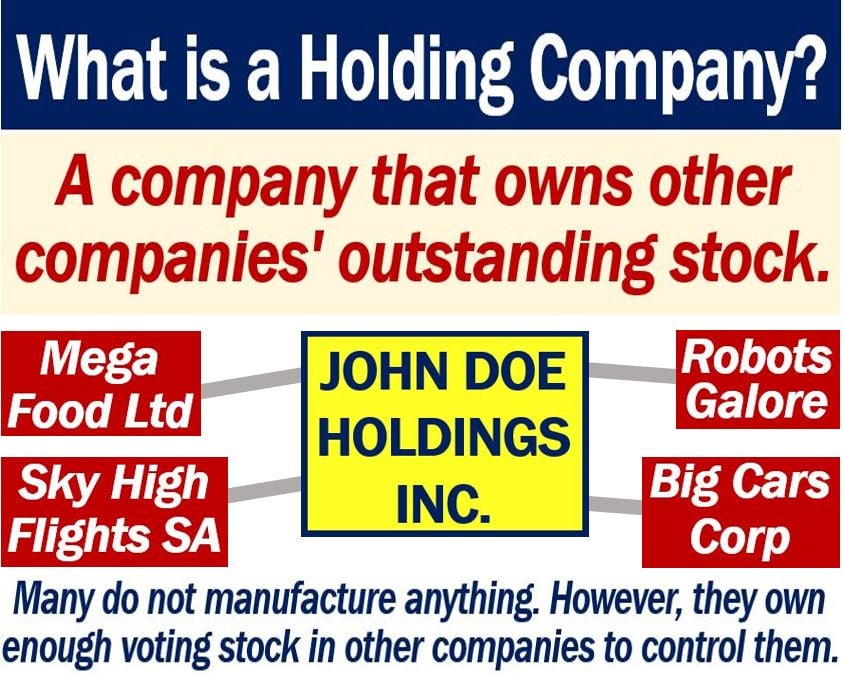What is a holding company?
A holding company is one that people create so that it can purchase and own shares in other companies. By ‘holding’ those shares it can control them. The ‘parent‘ company and its directors can influence and control other businesses. We often refer to those other businesses as subsidiaries.
By having this type of company, it is possible to veer away from your core industry. It is also possible, under certain circumstances, to benefit from tax consolidation. The holding company can, for example, share operating losses.
Holding company – different jurisdictions
The term ‘holding company’ exists throughout the whole English-speaking world. However, its meaning varies slightly from country to country.
It must be the owner of a certain percentage of the other business’ outstanding shares. However, this percentage is not the same everywhere.
In the United States, for example, the company must own 80% of another’s stock in voting and value. Otherwise, it will not have tax consolidation benefits such as being able to claim tax-free dividends.
Often, companies that aim to be pure holding concerns identify themselves as such by adding ‘Holding‘ to their name. Others may also add the plural form ‘Holdings‘ to their name.

Holding company benefits
One of the greatest advantages holding companies have is their protection from losses.
For example, if one of its businesses goes bust, its creditors cannot pursue the holding company to recover its losses.
Even though the parent company experiences a fall in net worth and a capital decline, the law protects it.
A company may structure itself as one entity that owns a subsidiary’s trademarks, patents, and brand names. However, another entity owns its buildings and land, i.e., its real estate.
In some cases, a third entity may own its equipment, vehicles, and machinery. They are all different companies that form part of the group.
By having different holding companies owning different parts of one subsidiary, the corporation has limited legal and financial exposure.
A holding company’s tax liability may also be limited if it structures itself in this way.
In the United States, many investment banks converted to holding companies after the 2007/8 global financial crisis.
Berkshire Hathaway Inc.
A famous example of a holding company that does not make anything is Berkshire Hathaway Inc. Warren Buffett, one of the richest people in the world, has been successfully steering the company for decades.
Berkshire Hathaway does not manufacture anything on its own. However, it has holdings in literally hundreds of businesses which provide it with a considerable income.
According to Insider Monkey:
“Buffett has invested into, and divested out of, many businesses over the years, with the one constant being the fact that his investment firm making the moves has turned into one of the most valuable companies in the world.”
Berkshire Hathaway’ largest stock holdings are in Kraft Heinz, American Express, International Business Machines (IBM), Coca-Cola, and Wells Fargo.
Holding companies often have keepwell agreements with their subsidiaries. This means that for a given period, the parent company makes sure the subsidiary is financially solvent. A keepwell agreement boosts the subsidiary’s creditworthiness.
Video – Benefits of holding companies
In this video, Dennis Graves talks about what you could do if your business had $100,000 left over. If you paid yourself that money as a bonus, about half of it would disappear in tax. If you kept it in the company, the tax bill would be much lower.
He then explains what would happen if you created a holding company.

